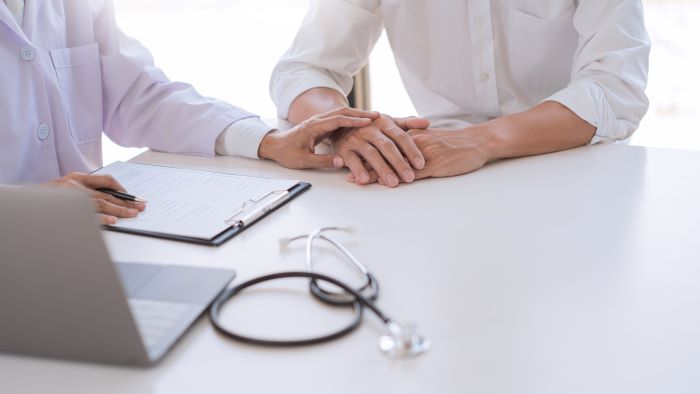
April is Oral Cancer Awareness month, and for good reason. More than 10,000 people die each year from oral cancer even though it is one of the most preventable cancers. Cancer occurs in cells when genetic mutations develop in the DNA of those cells. Typically this means a cell continues to grow and divide rather than die off. Then new cells form when they’re not needed. The extra cells can divide out of control and form a tumor.
Oral cancers take the form of white patches, red lesions or sometimes white and red areas inside your mouth. Other symptoms include lumps inside the mouth, difficulty chewing or swallowing, and unexplained loose teeth. Unexplained ear pain, difficult swallowing, and lip or mouth sores that don’t heal are other symptoms. These indicators don’t mean you have cancer, but it is important to discuss them with your dentist.
Yes, your dentist. You see your dentist at least twice a year, even if you have dentures (right?), so he or she has an established medical history with the health of your mouth. In other words, your dentist will be able to recognize changes in your mouth and recommend treatments or refer you to a specialist if they think it’s necessary.
While men are more likely to get oral cancer than women, people over the age of 45, and anyone with poor oral hygiene are at higher risk. Certain lifestyle choices increase the risk of your contracting oral cancer, too. Some of these include:
- Tobacco use (of any kind)
- Excessive alcohol
- Prolonged sun exposure
- Human papillomavirus (HPV)
- Weak immune system
To help lower your risk of oral cancer stop using all tobacco products. If you drink alcohol frequently, drink less! Moderation is key. Apply a lip balm with sunscreen whenever you go out and/or wear a hat that will shade your lips—particularly those with fair skin. Get immunized against HPV (young people by age 15) and boost your immune system with a healthy diet and plenty of exercise.
There are no cure-alls or confirmed methods of preventing oral cancer. Not yet. For now though, living healthy and smart is your best bet. And if you have dental benefits, use them. Not only will your dental benefits help keep your teeth clean and cavity free, going to the dentist regularly and asking him or her to perform an oral cancer screening could save your life.
Sources: https://www.mdanderson.org/cancer-types/oral-cancer.html
https://www.mayoclinic.org/diseases-conditions/mouth-cancer/symptoms-causes/syc-20350997
https://www.deltadental.com/us/en/protect-my-smile/oral-health-conditions/oral-cancer/what-is-oral-cancer-.html
American Cancer Society: https://cancerstatisticscenter.cancer.org/#!/cancer-site/Oral%20cavity%20and%20pharynx
https://cancerstatisticscenter.cancer.org/#!/state/Idaho

